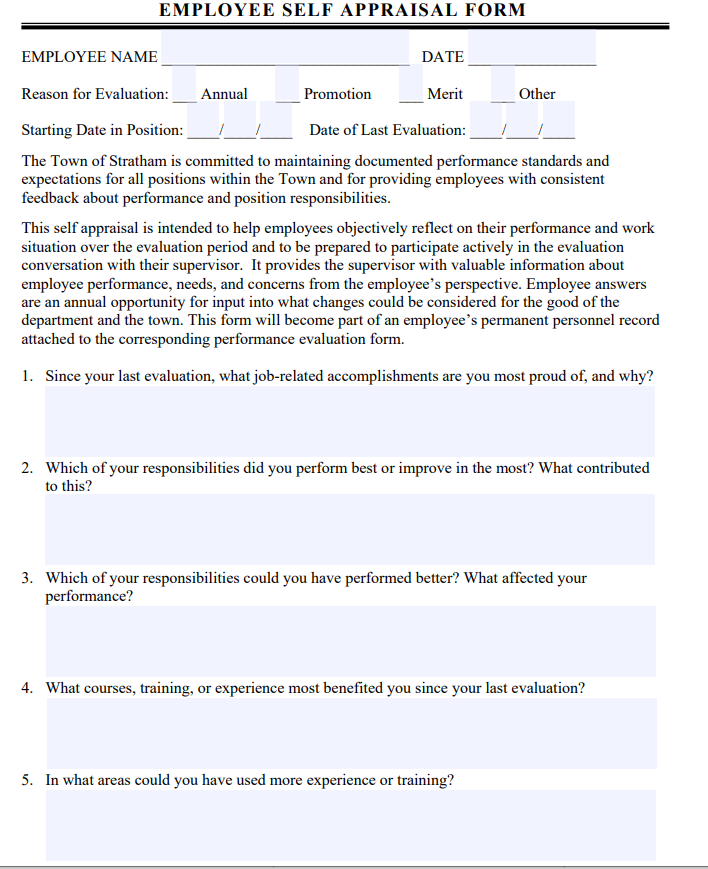Introduction
To refer to a particular assessment scale, in my opinion, I rate myself using the value of 8 in terms of the evaluation range from 1 to 10. I suppose I possess various beneficial skills, experiences, and competences, as well as a developed set of personal characteristics, qualities, and intentions. At the same time, I assume there is no perfection concerning people and their inner nature since every human being has disadvantages and negative aspects of behavior. In this summary, two concrete appraisal systems are described, as well as the description of two cases involving informal appraisals and unethical behavior.
A Trait-Focused Progress Report Evaluation
Employers are rated according to certain attributes that each employee demonstrates in a trait-focused progress report appraisal. The majority of trait-focused systems make use of a straightforward checklist with choices including outstanding, good, or requires improvement. In general, it is feasible to state that this methodology is overall popular with client service offices and departments. A scoring system is used by the behaviorally anchored rating system (BARS), which is the second appraisal example, to evaluate employees’ activities by measuring particular behaviors (Klieger et al., 2018). In behavior-focused assessments, several performance criteria are employed: graphic assessment methods, behaviorally anchored indicators, forced choice balances, and measurements with mixed values. The outcomes of ordinary workers should congregate in the center, with incompetent employees towards the bottom and outstanding employees close to the top, according to graphic grading system. To my mind, I would prefer the BARS method of formal appraisal since the trait-focused system possesses drawbacks. Since the majority of workers may receive good ratings in trait-focused assessments due to the manager’s prejudice and bias, this system’s trustworthiness and accuracy are limited; hence, considering changes, biases and abstract assessment options should be abolished.
Concerning the description of an informal appraisal situation that might lead to a formal appraisal, it is possible to emphasize a case, in which a lack of structure and systematization emerges. Unscheduled gatherings and conversations, discussion, mentoring, direction, and feedback are all components of an informal appraisal technique. These events take place inside a formal structure as well, and it is important to promote them in order to foster a climate of open dialogue. In fact, a shortage of systematic and concrete details, measures, and evaluations in an informal appraisal can potentially result in the implementation of formal appraisal approaches.
Companies struggle to develop solutions to prevent employees from engaging in unethical activity. In the organization, theft is a significant infraction since it indicates that the individual is inherently unreliable. Even in case an employee has perfect reputation, such a severe violation of corporate, ethical, and legal rules should provoke adequate managerial response. This instance generates discussion that involves ethical and legal issues that have to be acknowledged by the executives. For example, if no punishment is proposed and applied, other employees can assume the feasibility of repeating the unethical and illegal action due to the absence of penalties.
Conclusion
To summarize, a trait-focused progress report evaluation ranks employers based on specific qualities that each employee exhibits. The behaviorally anchored rating system (BARS), which is the second assessment example, uses a scoring system to assess employees’ performance by monitoring certain actions. Companies struggle to develop strategies to stop workers from acting unethically. Theft is a serious offense in the workplace because it shows that the offender is intrinsically untrustworthy. Even if an individual has a spotless reputation, a serious infraction of company policy should result in a supervisory response.
Appraisal form 1

Reference
Klieger, D. M., Kell, H. J., Rikoon, S., Burkander, K. N., Bochenek, J. L., & Shore, J. R. (2018). Development of the behaviorally anchored rating scales for the skills demonstration and progression guide. ETS Research Report Series, 2018(1), 1-36.